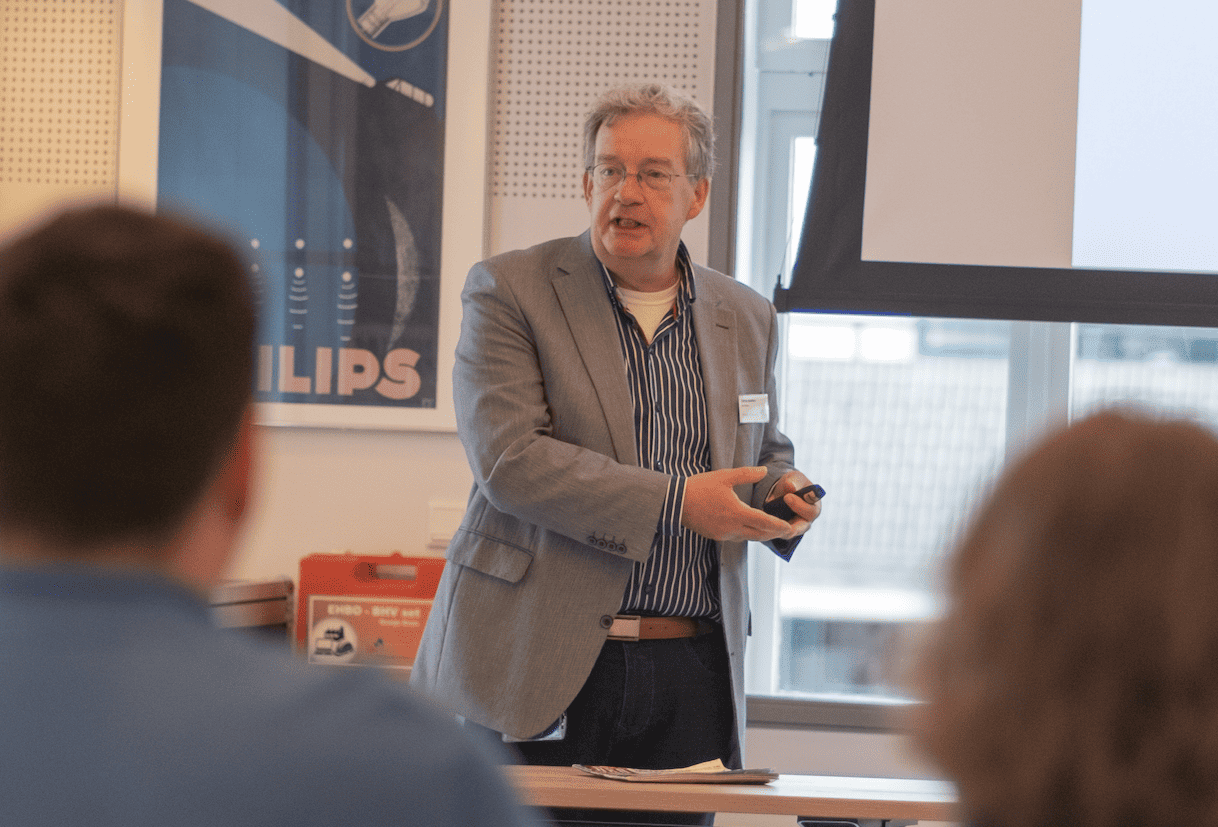
Circa, a Rotterdam based startup with two TU/e alumni, has launched their smart alarm clock on Kickstarter. In its basic version, the clock will cost €159. It helps you fall asleep, wakes you up at the best moment, and collects your sleeping data at night. The clock can be connected to other systems like the house heating and the lighting system. The alarm offers a selection of sounds, playlists on Spotify or digital radio. Circa wants to collect €100,000 on Kickstarter.
“A whopping 71% of people are sleeping with their smartphones, according to a recent study“, Daan Weijers says. “And if you’re one of them, chances are it’s affecting your sleep quality. Late at night, we find ourselves scrolling through our timelines, while the blue light affects our natural ability to sleep, making it hard to wake up in the morning. Circa is designed to change that.”
“Smartphones are affecting your sleep quality. Circa changes that.”Daan Weijers, Circa

TU/e alumni Daan Weijers and Yannick Brouwer, demonstrate Circa during Dutch Design Week 2017 (picture from Circa’s Facebook page)
In the evening, white noise, nature sounds or a breathing indicator can help you to calm your breath and slow down your thoughts before drifting away. At night, Circa’s display is dark by default, only showing the time when you need it. Circa also features a thin sensor to place underneath your mattress that measures movement and respiration to understand your sleep cycles. Weijers: “Old-fashioned alarm clocks wake you up at a fixed time every day, whether you are in a deep or light sleep. In a timeframe of 30 minutes before your alarm is set, Circa’s smart alarm will find the best moment to wake you up in light sleep, making you feel more refreshed in the morning.”
To improve your sleep routine, Circa provides users with insights based on multiple nights. “It helps you to adjust your schedule to get the most out of your night”, Weijers adds. “And don’t worry about your sleep data, all information is stored and processed locally on the device.”







